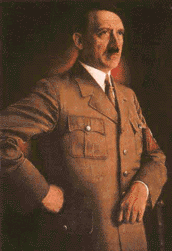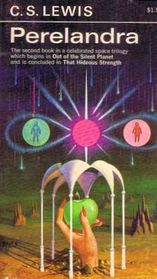One of C. S. Lewis’s earliest American friendships was with Chad Walsh, a professor of English at Beloit College in Wisconsin. Like Lewis, Walsh traveled the road from atheism to Christianity, and Lewis helped him on that journey.
 “In my case there was no childhood faith,” Walsh wrote in an account of how he eventually found the Christian path.
“In my case there was no childhood faith,” Walsh wrote in an account of how he eventually found the Christian path.
If I ever believed in God as a small child, no memory of the time remains with me. I regarded myself as an atheist from the moment I learned to read—and, indeed, pamphlet editions of Ingersoll, et cetera, were part of my earliest reading.
Why would a young boy be so attracted to a non-Christian worldview? Walsh, although ultimately placing the blame on his own stubbornness and pride, also pointed to a reaction he had to the community in which he was raised:
Undoubtedly my atheism was in part a revolt against the Fundamentalism of my home town—Marion, Virginia. . . . It was not a winsome faith, and I was in full agreement with H. L. Mencken about the superstitious backwardness of the “Bible Belt.”
He eventually escaped what he considered the confines of that small town and found the atmosphere of the University of Virginia more to his liking. There he didn’t have to worry about people shoving religion at him. He was free, he felt, but the freedom did not settle the bigger questions that began to crowd upon his mind. While he claimed to be a self-satisfied atheist, doubts crept in. “Is there such a thing as good or evil?” he often wondered. “Is there any meaning in life and the universe?” World events in the 1930s helped crystallize the answers.
 The rise of Hitler in Germany, and the growing awareness of the actions of that regime, forced him to confront the problem of evil in the world. Walsh’s companions in atheism and/or agnosticism, when challenged by Walsh to come up with a response to what Hitler was doing, would provide excuses, albeit excuses that were actually consistent with their worldview.
The rise of Hitler in Germany, and the growing awareness of the actions of that regime, forced him to confront the problem of evil in the world. Walsh’s companions in atheism and/or agnosticism, when challenged by Walsh to come up with a response to what Hitler was doing, would provide excuses, albeit excuses that were actually consistent with their worldview.
Walsh recounts,
They agreed with me that the world was a senseless jungle. Very well, they reasoned, if the world is a jungle, it’s absurd to speak of right and wrong. Everything is relative. Hitler thinks he’s doing right to invade Poland and murder the Jews. Very well, it is right for him. It’s all in the way you look at it.
That response shook him. He knew he had to come to grips with the reality of evil.
Walsh’s second question, about the meaning of life and the universe, intruded more on his thoughts once he was forced to recognize that real goodness and real evil existed, and that there was a decided difference between the two. If everything was some kind of cosmic accident, what did that say about his personhood? Was he living an illusion?
His atheism was crumbling. He lived in a transition from atheist to Christian for a few years, trying to figure out what he should believe. It all came down to the person of Jesus Christ.
Walsh began reading the New Testament. What he found surprised him. He had preconceived ideas of Jesus as some weak character—the words “meek and mild” were stuck in his mind from childhood. What he saw in the pages of the Gospels was something different:
The man I encountered in the Gospels was a towering figure of strength; even his death was that of a man strong enough to accept death voluntarily. So I was up against the final question: What or who was Jesus?
Eventually, reason led to faith.
As I recount in my book, America Discovers C. S. Lewis, along the way, Walsh had begun to read some Lewis, and that helped him see the reality. But then he had an experience with one of Lewis’s books that absolutely transformed him.
 A friend enthusiastically lent him a book she had just finished reading; she just knew he would love it. That book was Perelandra, the second in Lewis’s Space Trilogy in which the protagonist, Elwin Ransom, is transported to Venus to save an innocent world from falling into sin. Walsh was transported as well:
A friend enthusiastically lent him a book she had just finished reading; she just knew he would love it. That book was Perelandra, the second in Lewis’s Space Trilogy in which the protagonist, Elwin Ransom, is transported to Venus to save an innocent world from falling into sin. Walsh was transported as well:
I quickly consumed it from cover to cover. I was struck first of all by the sheer beauty of the book. It transported me into a kind of Elysian Fields—or better yet, an unspoiled Eden, inhabited by the innocent and unfallen.
A second revelation was that, even though he had always been a science fiction fan, he had never read any science fiction like this, where it could be used as a “vehicle of great philosophic and psychological myth.” The third revelation, though, was the greatest of all:
Finally, and most importantly, in Perelandra I found my imagination being baptized. At the time I was slowly thinking, feeling, and fumbling my way towards the Christian faith and had reached the point where I was more than half convinced that it was true. This conviction, however, was a thing more of the mind than of the imagination and heart.
In Perelandra I got the taste and smell of Christian truth. My senses as well as my soul were baptized. It was as though an intellectual abstraction or speculation had become flesh and dwelt in its solid bodily glory among us.
Walsh then became the first person to write a book about Lewis. To do so properly, he knew he had to visit Oxford and interview him. That’s the tale I’ll tell in a Lewis post next Saturday. Please come back.
